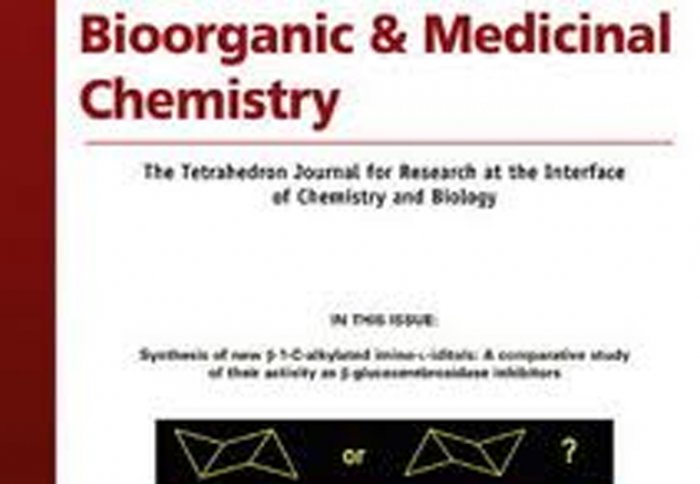Dec 2013 - Article in Bioorg. Med. Chem. Published

Guillaume's paper about the evaluation of a CXCR4-specific 68Ga-labelled TN14003 derivative for cancer PET imaging is published.
G.P.C. George, E. Stevens, O. Åberg, Q.-D. Nguyen, F. Pisaneschi, A.C. Spivey, E.O. Aboagye, 'Preclinical evaluation of a CXCR4-specific 68Ga-labelled TN14003 derivative for cancer PET imaging', Bioorg. Med. Chem. 2013, 21, DOI: 10.1016/j.bmc.2013.12.012
Molecular imaging is an ideal platform for non-invasive detection and assessment of cancer. In recent years, the targeted imaging of CXCR4, a chemokine receptor that has been associated with tumour metastasis, has become an area of intensive research. In our pursuit of a CXCR4-specific radiotracer, we designed and synthesised a novel derivative of the CXCR4 peptidic antagonist TN14003, CCIC16, which is amenable to radiolabelling by chelation with a range of PET and SPECT radiometals, such as 68Ga, 64Cu and 111In as well as 18F (Al18F). Potent in vitro binding affinity and inhibition of signalling-dependent cell migration by unlabelled CCIC16 were confirmed by a 3-fold uptake in CXCR4-over-expressing cells compared to their isogenic counterparts. Furthermore, in vivo experiments demonstrated the favourable pharmacokinetic properties of the 68Ga-labelled tracer 68Ga–CCIC16, along with its CXCR4-specific accumulation in tissues with desirable contrast (tumour-to-muscle ratio: 2.85). The specificity of our tracer was confirmed by blocking experiments. Taking into account the attractive intrinsic PET imaging properties of 68Ga, the comprehensive preclinical evaluation presented here suggests that 68Ga–CCIC16 is a promising PET tracer for the specific imaging of CXCR4-expressing tumours.
Article text (excluding photos or graphics) © Imperial College London.
Photos and graphics subject to third party copyright used with permission or © Imperial College London.
Reporter
Professor Alan C Spivey
Department of Chemistry